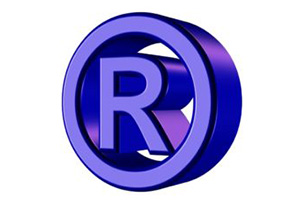WHAT ARE THE EFFECTS OF DISCLAIMING PORTIONS OF A TRADEMARK?
In trademark law, certain words can be difficult to protect. The United States Trademark Office (referred to in this article as “Trademark Office”) requires that a trademark holder disclaim the “exclusive” right to use unregisterable portions of a trademark or a service mark (collectively referred to in this article as “trademark”). Unregisterable portions can be the name of the goods or services (collectively referred to in this article as “goods”), other matter that does not indicate the good’s source, matter that is merely descriptive or deceptively misdescriptive of the goods, or matter that is primarily geographically descriptive of the goods.
For example, if you wanted to register FLYING PIG ENERGY DRINK, the Trademark Office would require that you disclaim the exclusive right to use ENERGY DRINK because the words ENERGY DRINK are the name of the goods. The reasoning behind the disclaimer requirement is that if the Trademark Office granted a trademark holder exclusive rights to use the words ENERGY DRINK, then others could not use the words ENERGY DRINK without infringing on a portion of the trademark – which is inherently unfair and illogical.
That being said, a disclaimer of a portion of a trademark does not remove the disclaimed portion completely from the trademark. See In re Nat’l Data Corp., 753 F.2d 1056, 1059, (Fed. Cir. 1985). A trademark must still be regarded as a whole – including the disclaimed matter – when evaluating a trademark’s similarity to other trademarks. See Specialty Brands, Inc. v. Coffee Bean Distribs., Inc., 748 F.2d 669, 672, (Fed. Cir. 1984). Therefore, even if a portion of a trademark is disclaimed, examining attorneys at the Trademark Office will consider the mark as a whole – including any voluntarily disclaimed matter – when considering the question of “likelihood of confusion”.
The “likelihood of confusion” question is a test examining attorneys at the Trademark Office use to determine if a trademark seeking registration so resembles another registered trademark, or a prior-filed trademark application, as to be likely to cause confusion in the marketplace. The likelihood of confusion test is one of the tests used to determine if a trademark is registerable with the Trademark Office. The test involves the weighting of several factors to determine if a trademark would create consumer confusion. To read more about the likelihood of confusion analysis click HERE.
Even though examining attorneys at the Trademark Office will continue to consider the disclaimed matter when considering the “likelihood of confusion” question, disclaimed matter will not be regarded as the dominant, or most significant, feature of a trademark. As a result, it is well advised that you seek the advice of an experienced trademark attorney to determine if you may be required to disclaim portions of your trademark, and what effect a disclaimer will have on the likelihood of confusion analysis for your trademark.
Additionally, conducting a trademark search of the Trademark Office’s database is always recommended before filing a trademark application with the Trademark Office. Many websites offer do-it-yourself search engines to perform trademark searches. However, many do-it-yourself trademark search websites do not adequately explain the effects of disclaiming certain words on the likelihood of confusion analysis or how to properly conduct a trademark search. You should always have a trademark attorney perform a trademark search and review the search results before filing an application to register a trademark. A good trademark attorney should advise you of issues that may arise in the application process so that you can make an informed decision before you invest time, money and resources to develop a brand.
The trademark attorneys at The Plus IP Firm have advised numerous clients regarding issues that may arise during the trademark registration process. If you have any questions regarding your trademark rights, the trademark and patent attorneys at The Plus IP Firm are available to answer any questions that you may have. To schedule a free consultation, click HERE. For more information about Derek Fahey, this article’s author, click HERE.











